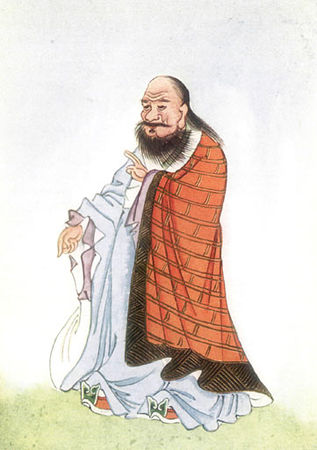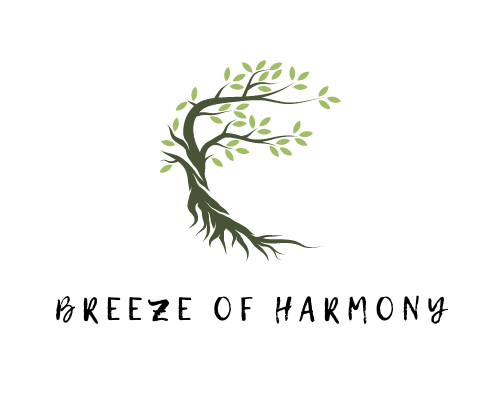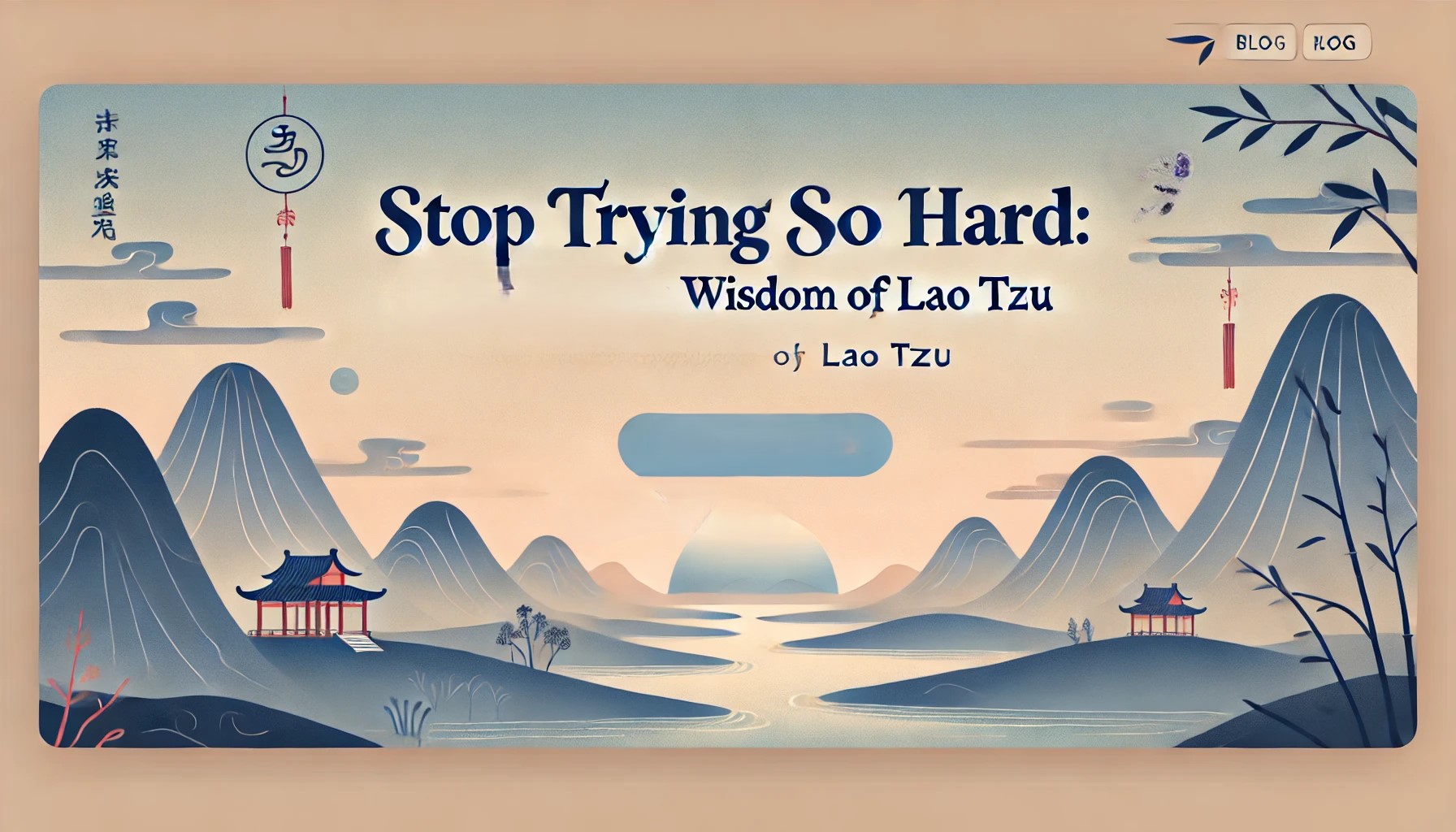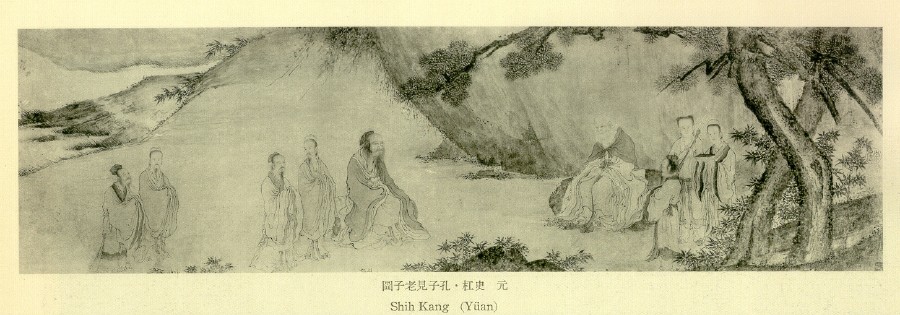In a world that glorifies hustle and relentless striving, Lao Tzu‘s ancient wisdom offers a refreshing perspective. Let’s Discover the effortless wisdom of Lao Tzu in “Stop Trying So Hard.” Imagine achieving your goals not through force but by aligning with the natural flow of life. Welcome to the art of not trying.
1. The Paradox of Trying So Hard
Standing Firm by Not Standing on Tiptoes
“Those who stand on tiptoes do not stand firmly. Those who rush ahead don’t get very far.”
Lao Tzu observed that human efforts often backfire. We try to improve the world, but sometimes our efforts create more problems. Whether it’s impressing someone or delivering a rehearsed speech, trying too hard can lead to failure. The problem isn’t our abilities but our overactive minds.
The Intellectual Prison
Lao Tzu recognized that intellectualizing and overanalyzing trap us. Instead of forcing and striving, he suggested a more natural approach: swimming with the stream rather than against it.
Confucius meets Laozi, Shi Gang (史杠), Yuan dynasty
2. Lao Tzu and the Tao Te Ching
A Legendary Sage
Lao Tzu, a legendary figure from around the 5th and 6th century BC, wrote the Tao Te Ching, a masterpiece of Taoist philosophy. His teachings emphasize trust, humility, and flexibility, all rooted in the mysterious force called Tao.
Trusting the Natural Way
“The rigid and stiff will be broken, the soft and yielding will overcome.”
Lao Tzu believed in the power of softness and yielding. By trusting the natural way, we align with the Tao and avoid unnecessary struggles.
3. The Essence of Taoist Philosophy
The Mysterious Tao
“The Tao that can be described is not the eternal Tao.”
The Tao is an overarching force beyond human comprehension. It governs the universe without rushing, always getting things done. Living in harmony with the Tao means moving with it rather than trying to control it.
Wu Wei: Effortless Action
Lao Tzu introduces Wu Wei, the concept of effortless action. It’s not about passivity but about acting in harmony with the natural flow. “For those who practice not doing, everything falls into place.”

4. Practicing Wu Wei in Daily Life
Non-Intervention
Lao Tzu emphasized non-intervention, especially for leaders. Overly controlling managers often disrupt the natural flow, making things worse. Great leaders trust the process and intervene only when necessary.
“Do you want to rule the world and control it? I don’t think it can ever be done.”
The Flow State
Effortless action aligns us with the Tao. Dr. Hui-Lin Chong explains that Wu Wei involves observing the forces in a situation undistorted by ego, allowing for flawless responses. This flow state merges action and awareness, creating a seamless experience.
Escaping Intellectual Prisons
To achieve Wu Wei, we must escape intellectual prisons. Mihaly Csikszentmihalyi, an expert on the flow state, describes “psychic entropy” as a state of inner chaos that disrupts natural flow. Letting go of mental strain returns us to a simpler, more responsive state.
4. The Courage to Let Go
Embracing Trust
“Mastery of the world is achieved by letting things take their natural course.”
Letting go requires trust. Trusting the process means no longer trying to control everything. It’s a bold move, but one that aligns us with the Tao and brings peace and effectiveness.
Key Takeaways
- Stop Forcing Things: Overstriving often leads to failure. Trust your abilities and let go of excessive control.
- Embrace Softness and Flexibility: Yielding and being soft can be more effective than being rigid.
- Live in Harmony with the Tao: Align with the natural flow of life instead of fighting it.
- Practice Wu Wei: Engage in effortless action by being receptive and allowing things to unfold naturally.
- Trust the Process: Let go of the need to control everything and trust that things will fall into place.
Lao Tzu’s wisdom teaches us the art of not trying. By letting go and aligning with the natural flow, we find a more effortless and fulfilling way to live. Embrace softness, trust the process, and discover the power of Wu Wei.

Depiction of Laozi in E. T. C. Werner‘s Myths and Legends of China


